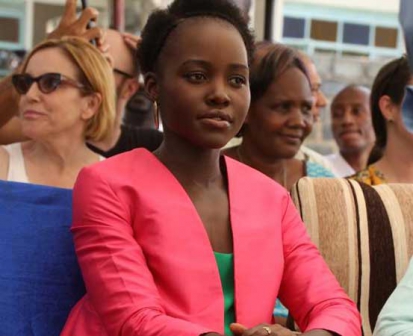×
The Standard e-Paper
Stay Informed, Even Offline

Shiny and odd-looking sweater gave Sarah Palin some relevance.
It seemed no one heard what she said when she was endorsing Donald Trump as her sweater hogged all the attention.